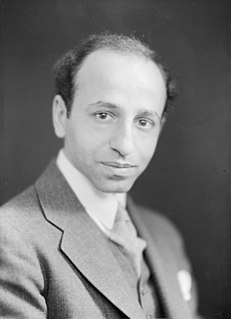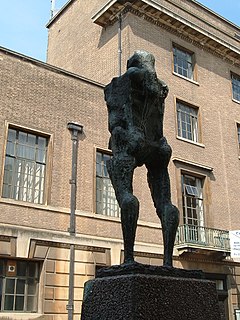A Quote by Albert Camus
An intellectual is someone whose mind watches itself.
Quote Topics
Related Quotes
An intellectual? Yes. And never deny it. An intellectual is someone whose mind watches itself. I like this, because I am happy to be both halves, the watcher and the watched. "Can they be brought together?" This is a practical question. We must get down to it. "I despise intelligence" really means: "I cannot bear my doubts.
The intellectual is not defined by professional group and type of occupation. Nor are good upbringing and a good family enough in themselves to produce an intellectual. An intellectual is a person whose interest in and preoccupation with the spiritual side of life are insistent and constant and not forced by external circumstances, even flying in the face of them. An intellectual is a person whose thought is nonimitative.
The central fact for me is, I think, that the [role of the] intellectual... cannot be played without a sense of being someone whose place it is publicly to raise embarrassing questions, to confront orthodoxy and dogma (rather than to produce them), to be someone who cannot easily be co-opted by governments or corporations, and whose raison d'etre is to represent all those people and issues that are routinely forgotten or swept under the rug.
If it's a likeness, alone, it's not a success. If, through my portraits, you can come to know the subjects more meaningfully, if it synthesizes your feelings toward someone whose work has imprinted itself on your mind--if you see a photograph and say, 'Yes, this is the person,' with a little new insight--that is a beautiful experience.
Freedom of mind is the real freedom. A person whose mind is not free though he may not be in chains, is a slave, not a free man. One whose mind is not free, though he may not be in prison, is a prisoner and not a free man. One whose mind is not free though alive, is no better than dead. Freedom of mind is the proof of one's existence.
The mind commands the body, and it obeys forthwith; the mind commands itself, and is resisted. The mind commands the hand to be moved, and such readiness is there that the command is scarce to be distinguished from the obedience. Yet the mind is mind, and the hand is body. The mind commands the mind to will, and yet, though it be itself, it obeyeth not. Whence this monstrous thing? and why is it?









































